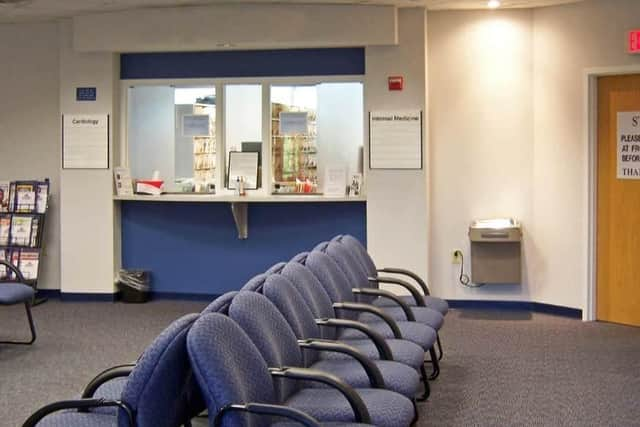Hundreds of Bedfordshire patients face long waits for autism diagnosis
and live on Freeview channel 276
Hundreds of patients are waiting months for an autism diagnosis in Bedfordshire, Luton and Milton Keynes, figures show.
A think tank has said a “radical rethink” of autism and ADHD assessments and treatments is needed if the NHS is to keep up with demand.
Advertisement
Hide AdAdvertisement
Hide AdThe National Institute of Health and Care Excellence has a target time of 13 weeks for those with suspected autism to be assessed.


But figures from NHS England show around 840 people in the area covered by the NHS Bedfordshire, Luton and Milton Keynes Integrated Care Board had been waiting at least this long for an autism diagnosis at the end of 2023. Of these, 7 per cent were under 18.
This was up from the same point a year before, when 575 people were waiting for 13 weeks or longer, 10 per cent of them children.
Across England, referrals for autism have been on the rise for both adults and children.
Advertisement
Hide AdAdvertisement
Hide AdAnalysis from the Nuffield Trust shows the 172,000 open referrals in December is the highest figure ever, and a five-fold increase since 2019.
Thea Stein, chief executive of the Nuffield Trust, called the rise in demand "unprecedented", saying the NHS is struggling to meet it.
She urged: "We are only now beginning to recognise just how many people are neurodiverse. The challenge is that we have an obsolete health service model in place to deal with this avalanche of need."
"We need to urgently understand the different elements of this complex picture and find a whole system approach across education, society at large and the health service," she added.
Advertisement
Hide AdAdvertisement
Hide AdAcross the country 136,000 people were referred to NHS autism services in 2023, with 905 of them in Bedfordshire, Luton and Milton Keynes.
In 2022 there were 112,000 new referrals.
The Nuffield Trust also point to a growing number of people receiving treatment for attention deficit hyperactivity disorder – ADHD – with a 51 per cent increase in the number of people receiving medication for the condition in 2022-23 compared to 2019-20.
However, it cautions there is currently no national data on ADHD assessments, so the exact scale of the issue is difficult to gauge.
An NHS spokesperson said: "The NHS is fully committed to supporting and improving the lives of those with ADHD and autism which is why we have published new national guidance to help local areas manage the 50 per cent increase in referrals they have seen.
Advertisement
Hide AdAdvertisement
Hide Ad"NHS England has also begun important work into investigating challenges in ADHD service provision and last month launched a cross sector taskforce alongside the Government, to help provide a joined-up approach for the growing numbers of people coming forward for support."
Saffron Cordery, deputy chief executive at NHS Providers, said improving the quality of care and access to services for autistic people "must be a priority".
"That includes making sure that patients, carers and families are involved fully in decisions about their care. We need to make sure too that the full range of services on which autistic people rely are funded properly and prioritised nationwide," she added.
She said trusts need greater government investment to deal with the increased pressure they are under.